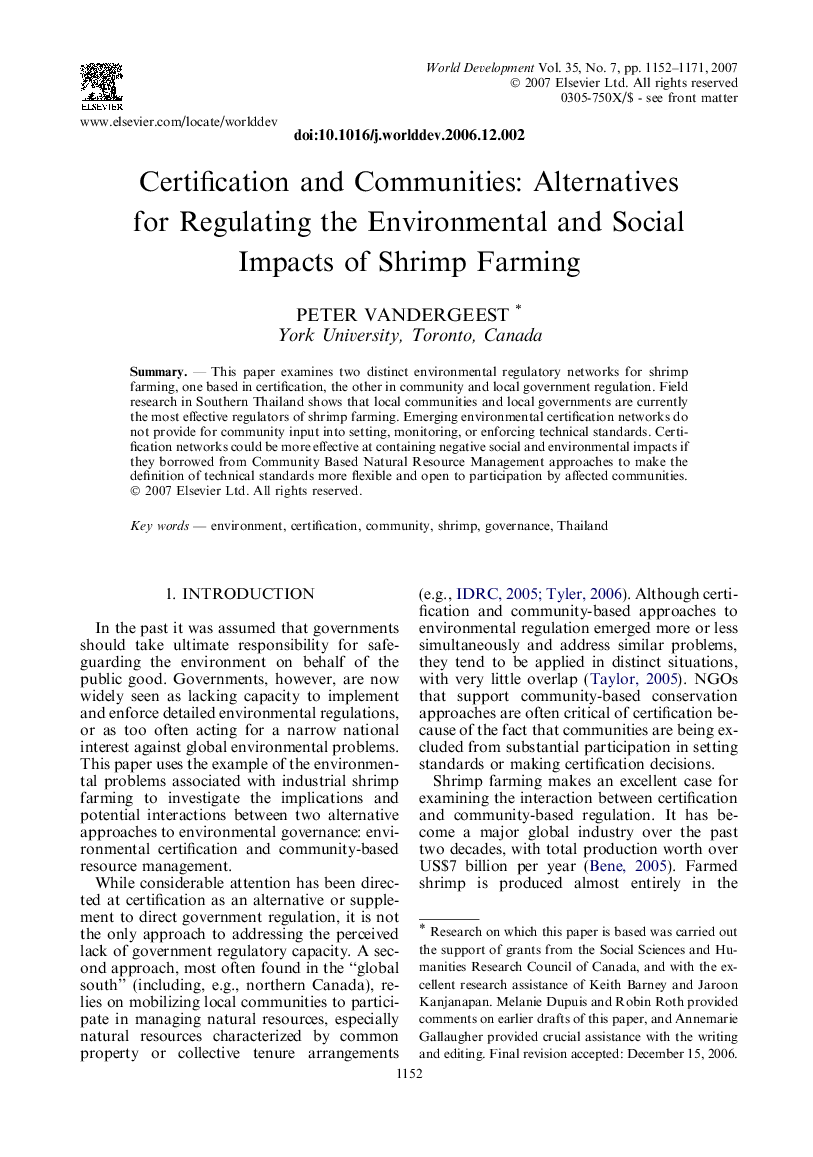| Article ID | Journal | Published Year | Pages | File Type |
|---|---|---|---|---|
| 991233 | World Development | 2007 | 20 Pages |
SummaryThis paper examines two distinct environmental regulatory networks for shrimp farming, one based in certification, the other in community and local government regulation. Field research in Southern Thailand shows that local communities and local governments are currently the most effective regulators of shrimp farming. Emerging environmental certification networks do not provide for community input into setting, monitoring, or enforcing technical standards. Certification networks could be more effective at containing negative social and environmental impacts if they borrowed from Community Based Natural Resource Management approaches to make the definition of technical standards more flexible and open to participation by affected communities.
